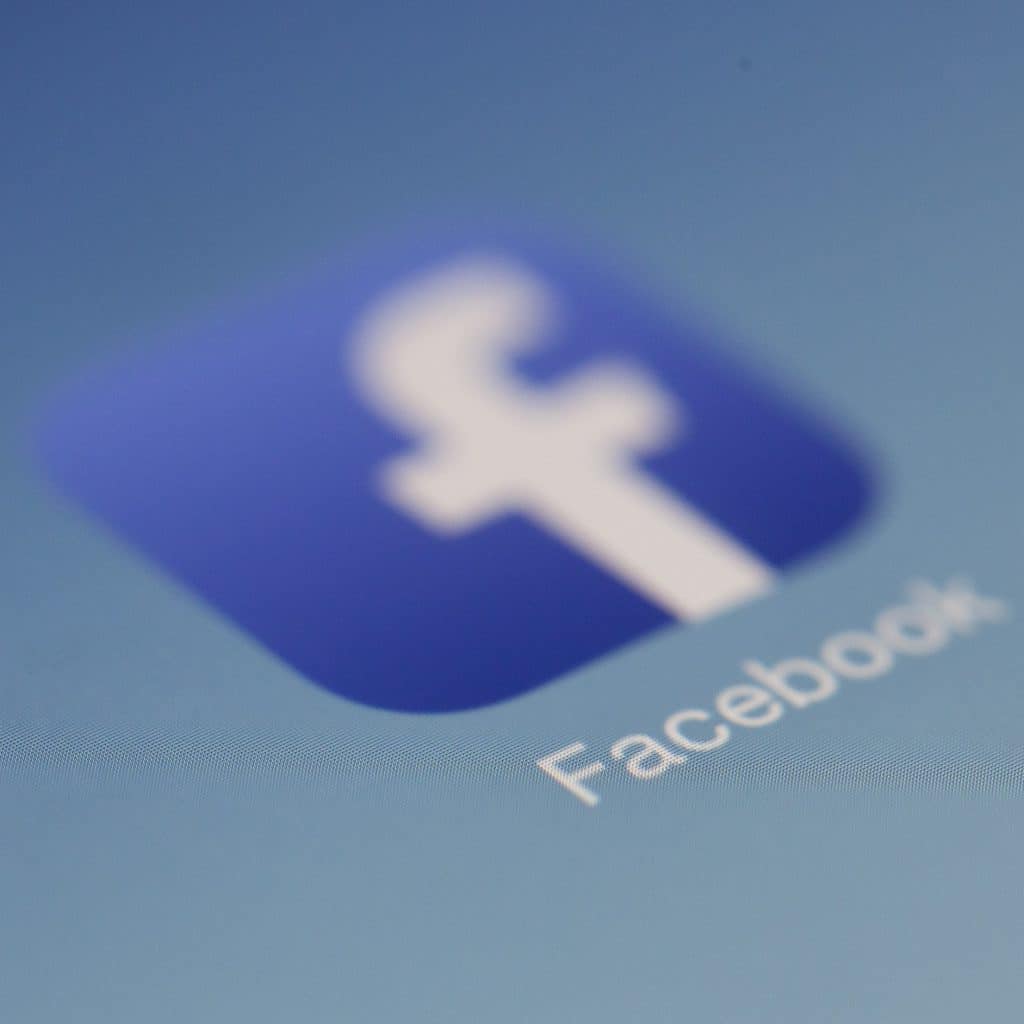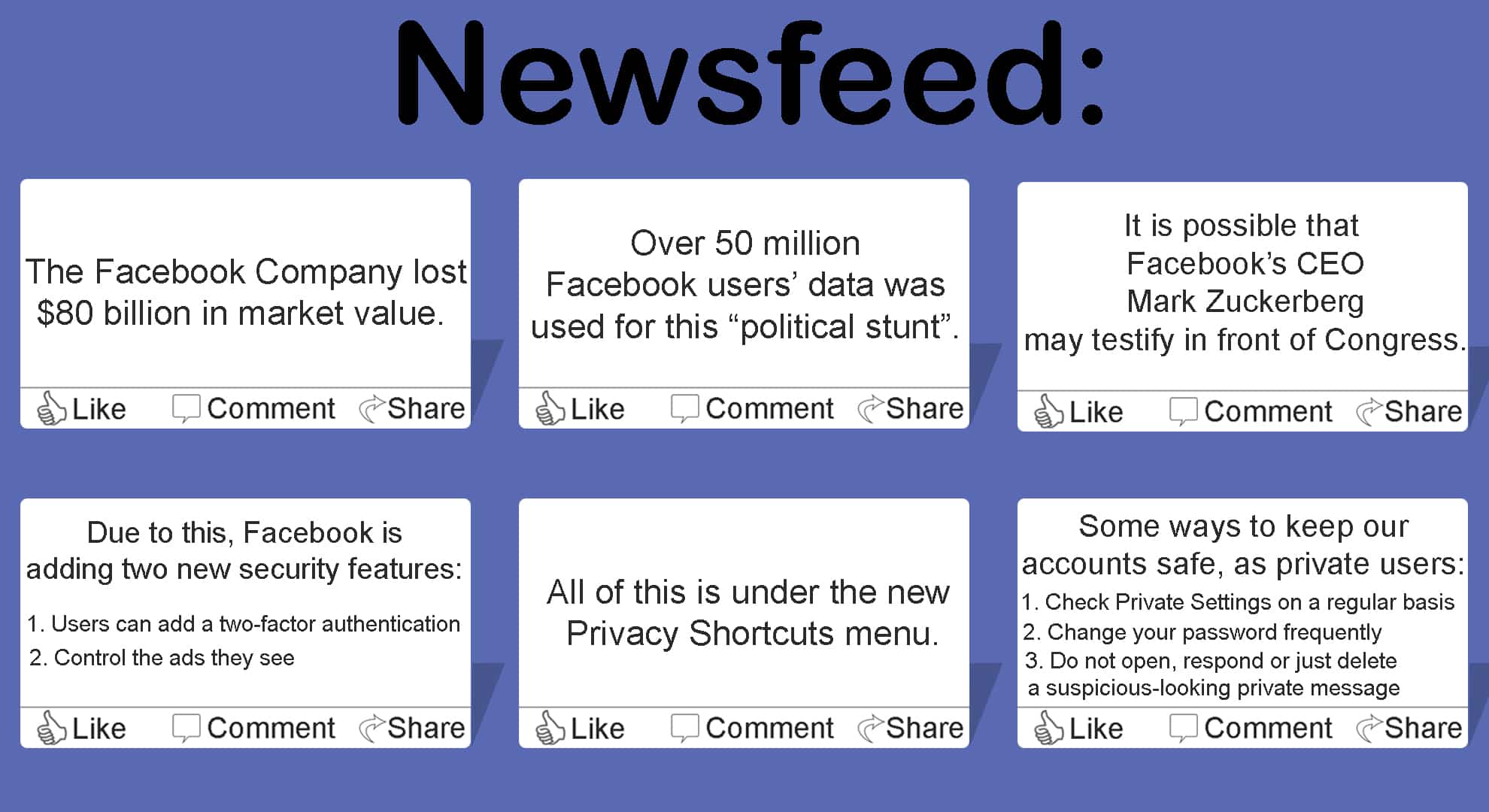
Still “like” Facebook?
Jonah Losh, staff writer
Graphic courtesy of Nicole Daniel
If you have watched any news lately, flipped through any wire service or news website or scrolled through your feed of your social media account, you have likely heard of the Facebook, Cambridge Analytica privacy scandal. Private enterprise has risen in disdain; the public voice has cried out in despair. What is going on?
Facebook tracks user data�a lot. But this is no secret; if anyone reads its terms of service (before checking the box saying, �I have read and agree to��), Facebook makes it plain that your data will be harvested for ad-personalization and targeting, among other things. But now we know how seriously relaxed Facebook has been with user information after it was leaked mid-March that Cambridge Analytica has over 50 million users� data compromised.
Most of the concerned data that was harvested was from users who downloaded the personality-testing app ThisisyourDigitalLife by Global Research Science. The app said that information submitted would be anonymous and used for research; however, when users signed up, or linked their third-party applications (i.e. Facebook), a message displayed alerting the user of what data the app would have access to. Then Global Research Science sold that data to elections-consultancy Cambridge Analytica, which reportedly had influence in the 2016 election.
But it does not stop there. Even though only around 270,000 people accessed the app, it collected data from the user�s Facebook friends, and friends of friends, ultimately accessing over 50 million accounts.
So here is where the controversy begins; most people whose data was affected never permitted the app access to their information.
In 2014, Facebook removed the option for third-party apps to access friends� data. In a blog post from March 21, the social media site stated that they will be alerting anyone whose data was or is compromised, among other things. Apps unused for three months will be disabled.
Facebook wrote that they will �investigate all apps that had large access to information before we changed our platform in 2014 to reduce data access.” Facebook has expanded their bug bounty program to reward anyone who discovers data misuse by app developers.
In response to the backlash and embarrassment (not to mention the plummeting Facebook stock), Facebook CEO Mark Zuckerberg issued an apology (in a Facebook post), and then ran a full-page apology ad in March 25�s Sunday issue of the New York Times, Washington Post and Wall Street Journal, along with a list of steps they are taking to secure user data. There are also rumors that he is set to speak in front of Congress.
�This is a real red flag,� North Greenville University information systems faculty member Justin Forrester weighed in on the scandal. �But there is not a big concern of what Cambridge Analytica is going to use the data for, because their purpose was to build software to target sling voters for political campaigns.�
And Cambridge Analytica will be unlikely to use the data they still have now that they have been caught.
�But it tells us we need to take stock of the info we put online. What we put out there can be used by a third-party. We need to be concerned about our digital footprint,” Forrester went on to say.
So whose fault is it? Apparently, there is enough blame to go around, according to Forrester.
�Cambridge Analytica was able to do what they did because of lax Facebook practices, but also because Facebook users aren�t exactly security conscious. If users had their accounts locked down a little better and were more aware of their privacy settings, this may not have been able to happen,� he said.
But while many parties are to blame, he encouraged that users need to learn a lesson: our idea of privacy is mistaken.
There are two ways one could react, he stated.
One is that we live in a state of fear, wipe out our social media footprint, �hold up in a bunker� and not be a part of the world.
�Or we could take a lesson and reevaluate what information we want to be accessible [by anyone].�
He also alerted users that as Facebook is constantly updating their privacy settings to regularly check their settings: �Stuff gets moved around, and your settings could be lost in the shuffle.�
But most of all, �don�t click on weird things.� And don�t sign up with your Facebook account.
Get acquainted with Facebook�s settings, he suggested. Know the new security features and privacy controls. Take control of your digital footprint.

